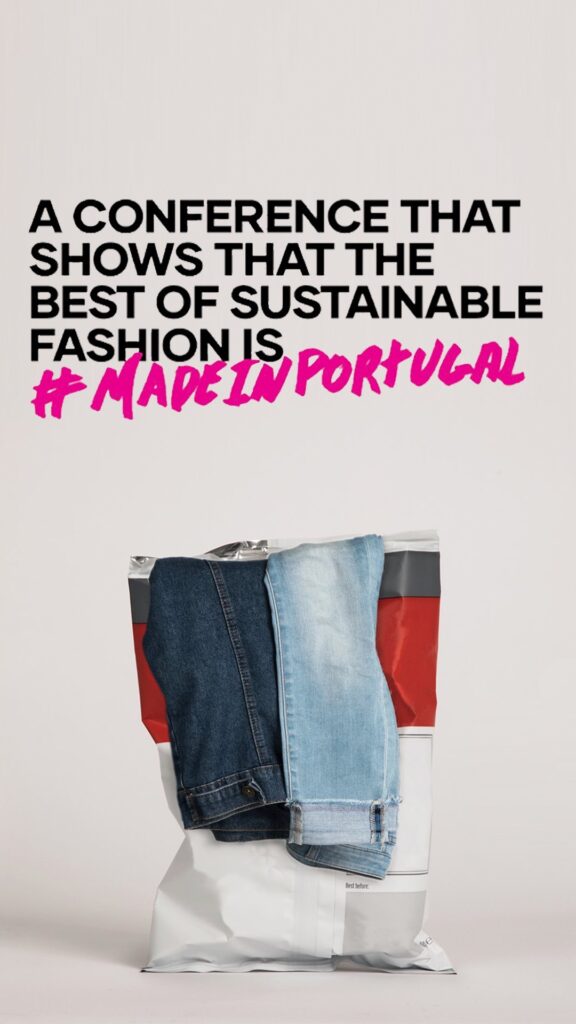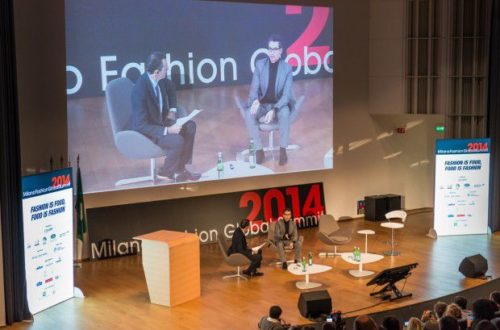Lisbon: the 2020 European Green Capital, the first among the Southern European countries to achieve the title. In October 2020, the city hosted the Sustainable Fashion Business conference: an event portraying the country’s role as a facilitator to a more sustainable future for the fashion industry.
The sustainable fashion conference 2020

The conference welcomed many speakers from across the globe: Manufacturers, the Portuguese Minister of the Environment, Designers such as Priya Ahluwalia, and Organizations like The Ellen MacArthur Foundation. The topics of discussion centered on how the industry could possibly move forward in sustainability, green financing schemes, textile waste and the importance of technology. The Minister José Fernandes added that the country is taking greater responsibility for its manufacturing capacity. “By openly addressing the global market, the Portuguese capital is looking to rally both leaders and visionaries in creating the circular and sustainable future we urgently need.”
What makes the portuguese fashion industry sustainable?
The adoption of sustainability practices rose when Asian competition started to intensify, and Portuguese manufacturers needed a new competitive advantage to stay in the market. Currently, “Portugal is the world leader for high-quality technical textiles, especially performance fabrics and fabrics made from recycled materials. The industry is recognized for its flexibility, quick response, know-how and innovation”.
So why is “Made in Portugal” sustainable?
- Investment in modernized facilities and increased expertise
Portuguese manufacturers invested deeply in modern facilities but also increased their expertise in upcycling, natural dyeing and traceability of raw materials.
- Traceability
“We have processes in place to ensure full traceability for the end customer: They can always trace the entire raw material selection from the fibers to the dyes, so everyone is aware of the origins and know that they are not contributing towards child labor or other unsustainable industry practices” said Luís Sousa Dias, from LMA Textiles.

- Quality of raw materials to ensure long life span
“We make sure that our raw materials are of a quality that will allow the garment to have a long life span,” added Sousa Dias, making reference to the company’s use of mostly biodegradable, organic, recyled or recyclable fibers.
- Environmental consciousness

Pizzaro SA, the first fully automated facility in Europe, highlighted that, “when it comes to fabric dyeing, the company uses a “closed system water treatment plant” that allows for the same water to be used for up to 22 days, saving up to 140 liters of water per minute.”
- Upcycling
Pizzaro SA has a long-term upcycling initiative, “whereby unused clothes are collected from warehouses across Europe and transformed into new garments at the company’s factories.” “We’ve been doing it for 15 years now and have developed an open line with our clients. We do it with trousers, jackets and knits”
- Sponsorship programs for new sustainable designers

Mafalda Pinto, CEO of Scoop Portugal, mentioned the manufacturer’s new sponsorship programs for emerging designers, who share the same commitment and are enthusiastic about sustainable production: “We are in the path of becoming a lab or an atelier and that’s what the future is.”
- A new fashion cycle
“The industry had the tendency to work in big numbers, with a linear system and seasonal collections. But all of that is now gone, there are no seasons but capsules, pre-orders, and understanding exactly what you sold as a brand.”
Key advantages of shifting production to portugal
By having a certified sustainable producer in Europe, big corporations can take advantage of the Portuguese geography: lower costs of transportation between manufacturing and end consumer, consequent lower carbon footprints, higher flexibility of production (which was something that a few companies struggled with during Covid- 19, i.e. H&M), and increased local consumption. Even if a company’s end consumer is not in Europe, Portugal is located in the Southwest point of the continent, allowing for a “quick” access to the Americas. Although costs such as wages are probably increasing, made in Portugal products allow for a transition from mass production in low skilled environments to manufacturing inside an industry filled with centuries of craftmanship and heritage. Finally, by being in Europe, big corporations are forced to comply with EU Laws on employment thereby leading to more sustainable results and consequent greater popularity for such companies.
By Sofia Castro





